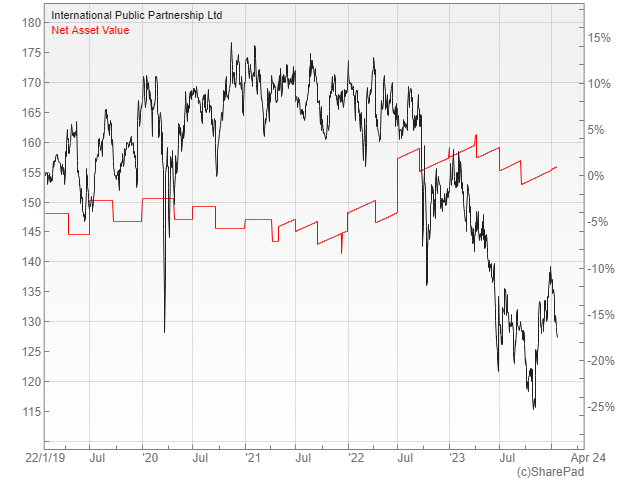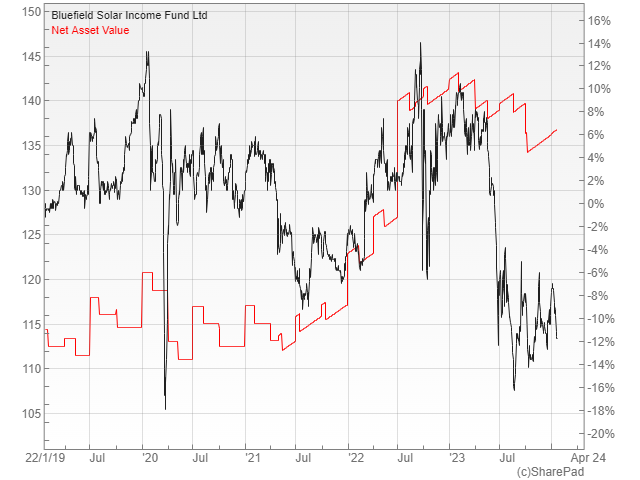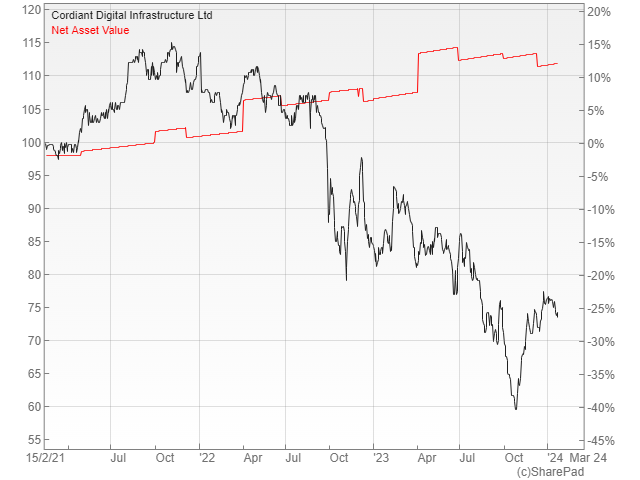Three Infrastructure Trusts For 2024

The broker Numis has recently highlighted the opportunities available in the infrastructure sector. They say that it is an area that offers compelling risk-adjusted return potential, as it provides access to high quality cash flows from irreplaceable portfolios of critical assets.
For most of 2023 the markets were dominated by rising interest rate expectations, which undermined the share prices of many of the infrastructure trusts. However, the negative impact of higher discount rates on the underlying NAVs was partially offset by the growth in revenues as a result of the strong inflation linkage.
The change in the macro-economic environment has forced these funds to be more proactive in terms of their disposals. Often these were achieved at better than book value, thereby helping to support the NAVs and generating additional cash to reduce debt or pay for share buyback programmes.
Sentiment towards the sector started to improve once investors became convinced that interest rates had peaked, with the average discount narrowing from a high of 21% to the current level of 15%. Numis still believes that this represents good value given that the long-term average for the sector is a premium of five percent.
Core Infrastructure
Their preferred option for core exposure is the £3bn International Public Partnerships (LON: INPP) that is yielding 5.5% and trading on a discount of 17%. It has a more diversified portfolio than its core peers and offers exposure to attractive parts of the market that are difficult to access via other strategies, such as offshore transmission cables.
Numis says that it has a high degree of inflation protection that when combined with the long-term earnings visibility, suggests the fund can continue to deliver its historic dividend growth rate of 2.5% per anum for at least another 20 years. It has a conservative balance sheet and healthy level of dividend cover.
A material recent disposal has enabled the Board to announce a share buyback programme and reduce the drawn balance on its revolving credit facility. There was also enough cash to increase the annual dividend by more than its long-term growth rate, in recognition of the inflationary environment.

Renewable Energy
In the renewables sector they like the £1.4bn Bluefield Solar Income Fund (LON: BSIF), which is currently yielding 7.4% and trading on a discount of 17%. Since its IPO in 2013 it has delivered NAV total returns of 9.8% per anum, one of the best in this part of the market, with a significant proportion of returns coming from income.
Numis says that a key driver has been management’s strong origination that has sourced assets at attractive prices, with a large proportion of projects having been acquired during the construction phase. The healthy returns are also partly due to an effective power price hedging strategy that has enabled the fund to capture the highs while mitigating the lows.
BSIF has recently announced a strategic partnership with GLIL Infrastructure that will allow the fund to generate additional proceeds to reduce debt and provide an extra funding partner for the proprietary pipeline of future opportunities. Numis describe the 7.4% yield as attractive and says that there is scope for further meaningful growth over time, especially as the dividend cover is at the top end of the peer group.

Value Opportunity
Last year was a difficult one for the two digital infrastructure trusts, with Digital 9 Infrastructure (LON: DGI9) and Cordiant Digital Infrastructure (LON: CORD) delivering share price total returns of -71% and -26% respectively. The problems at the former date back to its IPO when it set its dividend target too high, thereby forcing the fund to buy unsuitable assets using expensive debt, but the same does not apply to CORD.
Numis says that Cordiant has a sensible dividend target, which remains fully covered. They think that it has an interesting mix of portfolio companies, acquired at what appear to be attractive prices that have the capacity to drive long-term returns in line with the nine percent annual target.
Another factor in its favour is the significant share ownership of the manager, which aligns its interests with investors. The broker believes that the shares have been unfairly impacted by the negative sentiment to DGI9 and offer good value on a 33% discount and a yield of over five percent.

Instead of focusing on the NAV why not tell us what these funds have actually invested in.
A few years ago it was a similar story and no one made much from this sector and now its been reborn again.
Buyer Beware……………………..